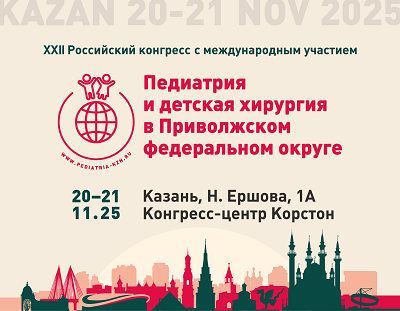Evaluation of erythrocyte and reticulocyte indices in a newborn with severe hemolytic disease
https://doi.org/10.21508/1027-4065-2024-69-2-101-106
Abstract
Currently, significant progress has been made in the prevention, diagnosis and treatment of hemolytic disease of the fetus and newborn. However, the development of anemia in a newborn child due to this disease remains an urgent problem for both neonatologists and pediatricians. In such children, a comprehensive assessment of the hemogram is of particular importance. The study of erythrocyte and reticulocyte parameters of a general blood test is necessary to determine prognostic criteria for the restoration of hematopoiesis and determine the status of iron deficiency. A clinical observation of a newborn child with the development of anemia due to hemolytic disease of the fetus and newborn is presented (clinical case). A dynamic analysis of reticulocyte parameters (absolute and relative numbers) and reticulocyte fractions was carried out. An increase in reticulocytes (absolute and relative numbers) was established, mainly due to the fraction of immature reticulocytes during the development of anemia in a newborn child. Such indicators as the hemoglobin content in reticulocytes, the average hemoglobin content in an erythrocyte, the average hemoglobin concentration in an erythrocyte in a general blood test in an infant during the neonatal period remained within the reference values. The data obtained made it possible to determine a personalized approach to the treatment of anemia and avoid blood transfusion in this child.
About the Authors
M. V. ArtiushevskayaBelarus
Minsk
N. N. Klimkovich
Belarus
Minsk
A. P. Sukhareva
Belarus
Minsk
A. M. Kozarezova
Belarus
Minsk
Ya. V. Pechinskaya
Belarus
Minsk
A. A. Rusak
Belarus
Minsk region
References
1. Sheibak L.N. Modern concept of hemolytic disease features of the fetus and newborn. Zhurnal Grodnenskogo gosudarstvennogo meditsinskogo universiteta 2015; 1: 134–135. (in Russ.)
2. Antonov A.G., Degtyarev D.N., Narogan M.V., Karpova A.L., Senkevich O.A., Sapharov A.A. et al. Hemolytic disease of the fetus and newborn. Clinical guidelines. Neonatologiya: novosti, mneniya, obuchenie 2018; 6(2): 131–142. (in Russ.)
3. al-Alaiyan S., al Omran A. Late hyporegenerative anemia in neonates with rhesus hemolytic disease. J Perinat Med 1999; 27(2): 112–115. DOI: 10.1515/JPM.1999.014
4. Zakharova I.N., Tarasova I.S., Chernov V.M., Machneva E.B., Vasilyeva T.M. Reticulocyte indices in diagnosis and control of effectiveness of treatment of iron deficiency conditions in children. Pediatricheskaya farmakologiya 2015; 12(6): 692–696. (in Russ.) DOI: 10.15690/pf.v12i6.1494
5. Auerbach M., Staffa S.J., Brugnara C. Using Reticulocyte Hemoglobin Equivalent as a Marker for Iron Deficiency and Responsiveness to Iron Therapy. Mayo Clin Proc 2021; 96(6): 1510–1519. DOI: 10.1016/j.mayocp.2020.10.042
6. Machneva E.B., Zakharova I.N., Tarasova I.S., Chernov V.M., Lazareva S.I. Average content of hemoglobin in reticulocyte — accurate iron deficiency indicator in adolescents. Pediatriya. Zhurnal im. G.N. Speranskogo 2015; 94(6): 33–38. (in Russ.)
7. Gordeeva O.B., Botvinyeva V.V., Namazova-Baranova L.S. Erythrocyte and reticulocyte indices in patients with inflammatory diseases of diverse genesis. Pediatricheskaya farmakologiya 2012; 9(6): 110–112. (in Russ.) DOI: 10.15690/pf.v9i6.5286
8. Baranov A.A., Semikina E.L., Melnichuk O.S., Gordeeva O.B., Namazova-Baranova L.S., Morozova N.A. et al. Reticulocyte indices in healthy children. Voprosy diagnostiki v pediatrii 2010; 2(4): 17–21. (in Russ.)
9. Löfving A., Domellöf M., Hellström-Westas L., Andersson O. Reference intervals for reticulocyte hemoglobin content in healthy infants. Pediatr Res 2018; 84(5): 657–661. DOI: 10.1038/s41390–018–0046–4
Review
For citations:
Artiushevskaya M.V., Klimkovich N.N., Sukhareva A.P., Kozarezova A.M., Pechinskaya Ya.V., Rusak A.A. Evaluation of erythrocyte and reticulocyte indices in a newborn with severe hemolytic disease. Rossiyskiy Vestnik Perinatologii i Pediatrii (Russian Bulletin of Perinatology and Pediatrics). 2024;69(2):101-106. (In Russ.) https://doi.org/10.21508/1027-4065-2024-69-2-101-106











































